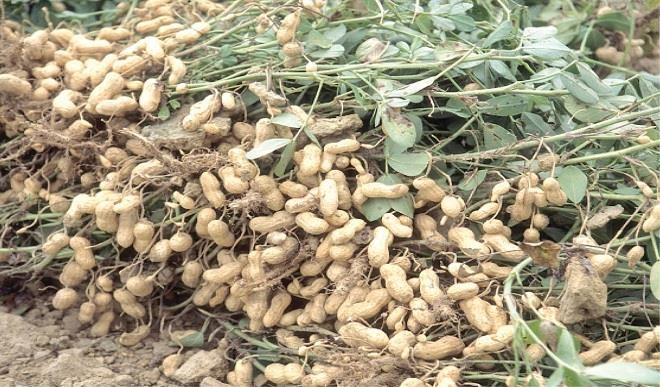
Many years ago, groundnut was produced in commercial quantity in Benue State but the situation is no longer the same in recent times. Cultivation of the crop has gradually dropped. Farmers fear that groundnut production may soon stop if government fails to take any measure to revive its production.
A groundnut farmer, Saa Gbue, cultivates five hectares of groundnut each year but he gets far less than his expectation during harvest, reaping between 150 and 180 bags only.
Gbue, the state’s chairman of the National Groundnut Producers, Processors and Marketing Association (NGPPMA), blames his losses on poor yielding seed variety, lack of modern equipment and inability to control diseases affecting the crop.
He laments that there are hardly any incentives to groundnut farmers in the state to boost their production, stressing that the present state government fails to recognise its importance.
He said: “Even when we were using local implements to farm groundnut, at least, fertiliser was readily available for us to apply to get moderate harvest. But now, we have no implements or fertiliser. The biggest problem militating against the successful production of the crop is non-availability of good seedlings.”
Another farmer in Oju Local Government Area of the state, Genesis Odey, says that the challenges affecting the production of the crop are enormous, listing the inability of the farmers to access good seedlings and control of groundnut disease as crucial problems.
The disease, Odey says, results in poor harvest and affects value chain of the crop, pointing out that a hectare of farmland which is supposed to produce between 30 and 35 bags now produces only seven bags after harvest.
To overcome the challenges, Gbue urges the government to revive groundnut production in the state and, by so doing, rekindle the lost hope of farmers.
He says that over the years, the federal government had made unsuccessful attempts to revive the sector, adding: “Two years ago, they made us hope for new seeds to plant. If we have the improved seed, it will help us to produce twice in a year. In addition, the federal government can make good its promise to give us a market to sell our produce.”
No doubt, the industrial crop remains an important food component in Nigeria, despite its neglect over the years, especially after the breakthrough in the oil sector.
In the past, the commercial crop was the main source of the nation’s economy until the discovery of oil in export quantity in the Niger-Delta which shifted the federal government’s attentionfrom depending on agriculture to solely relying on the oil and gas sector.
Ever since the neglect, groundnut production fell from the country’s export list and as such small holder farmers, too, began to suffer economic hardship while the diseases infecting the crop aggravated over the years, occasioned by severe drought.
The disease, says Gbue, changes the colour of the crop’s seed, makes it bitter and rotten soon after harvest, thus, reducing its market value and decreasing profit margin for the owner.
He expressed confidence that if the federal government’s initiative to introduce science-based innovations to revive the groundnut industry in Nigeria is successful, it would rapidly increase production of export quantity in places such as Kwande, Konshisha, Ukum, Oju and Obi local government areas of the state, notable for producing the crop in commercial quantity.
Meanwhile, the Benue State Chairman of the All Farmers Association of Nigeria (AFAN), Comrade Aondona Kuhe, has attributed the drop in production partially to climate changes and mainly due to lack of incentives to farmers.
The Commissioner of Agriculture and Natural Resources, James Anbua, did not respond to his calls and text messages at the time of this filing this report to comment on the situation.




